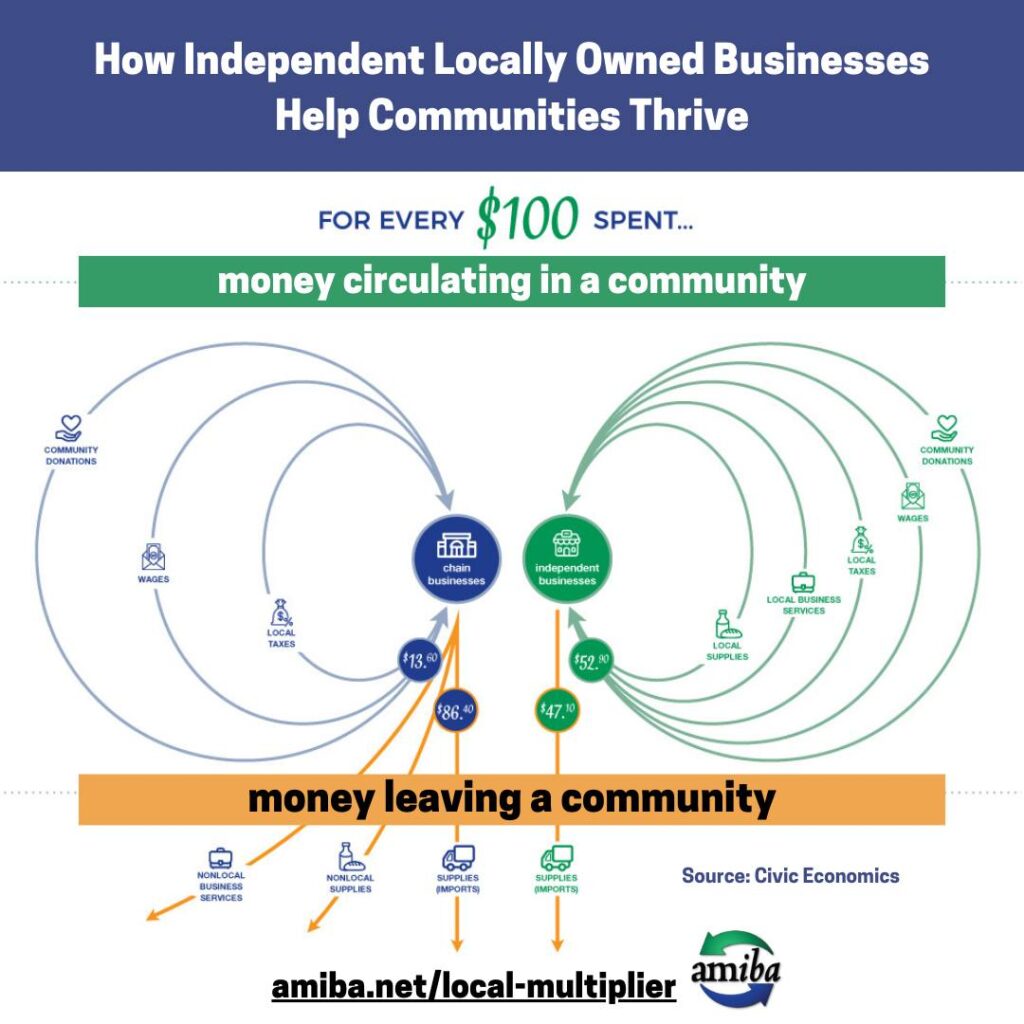You might have noticed that information about the upcoming AMIBA virtual conference is encouraging you to “bring” a group of people — not just from your IBA, but from other organizations and agencies that you work with (or would like to work with). You might have even heard some AMIBA people call that group a “cohort,” as in, “Try to bring a cohort from your community to the virtual conference.”
What’s going on? And why would we want to invite people from other organizations? There’s several reasons:
- If we are truly going to build a Local Economy Movement, that’s going to take more than just the people who have often signed on to Buy Local campaigns in the past. A healthy Local Economy needs everyone, from auto mechanics to local manufacturers, and from residents to elected officials and government. Too often, we try to do everything ourselves, and we don’t get the results that anyone wants. This is a great opportunity to build or strengthen your bridges to other organizations and ramp up our ability to make that impact, together.
- There’s never been a better time to lead the rest of your community to support the Local Economy Movement. Everyone in your community knows how much the pandemic has affected the local businesses they love, but they don’t know what to do to help them. By organizing them, bringing them new information and showing them the possibilities, you will gain their trust and look like a good source of the kind of help they are seeking most right now.
- A cohort gives you a small but powerfu team that is ready for action – ready to take what you learn from the conference and use that to make an impact on your community.
Who might be good to invite to your cohort?
- Your Board members. Some IBAs make a practice of sending at least some of their board members to all AMIBA events, but most can’t afford the cost of travel and registration for everyone. Not this time! The virtual conference will give them a chance to expand their horizons and learn more about Local Economy issues — learning that will increase their ability to guide your organization’s growth.
- Leaders of other nonprofit organizations. The Local Economy Movement is a team sport, and organizations and foundations of all types are paying more attention to the importance of supporting local businesses and equity than they have ever before. When they join you at the virtual conference, they’ll not only learn more about the unique challenges you work with every day, but they’ll also develop a new appreciation for how collaborating with and supporting your IBA will advance the whole community.
- Business owners. Getting business owners to attend meetings and conferences is notoriously hard, but this one couldn’t be easier – or more relevant to their concerns. Thursday’s customer service training with Zingerman’s is sure to get their attention!
- Government staff, department heads and elected officials. Some IBAs work well with their local governments, but some have a history of keeping their distance. But there’s never been a better time to build that relationship – local independent business and social equity are suddenly front and center for almost every city planner, economic developer and city offical in the country. They need you to help solve some of their most pressing problems…and for the first time in a long time, they are starting to realize that!
- Faith leaders, especially from communities that often get overlooked. If you want to support more minority-owned businesses, but lack existing relationships with those communities, leaders of churches, mosques, temples and other places of worship are often the best people to engage. You’ll find that they know these communities better than anyone, and their relationships with their community lead them to spend a lot of their time looking for ways to help them thrive.
Just getting these people to attend the virtual conference will help you make a greater impact on your community, but if you work it right, it could do even more. Stay tuned for tomorrow’s article on how to get the most out of your cohort.

